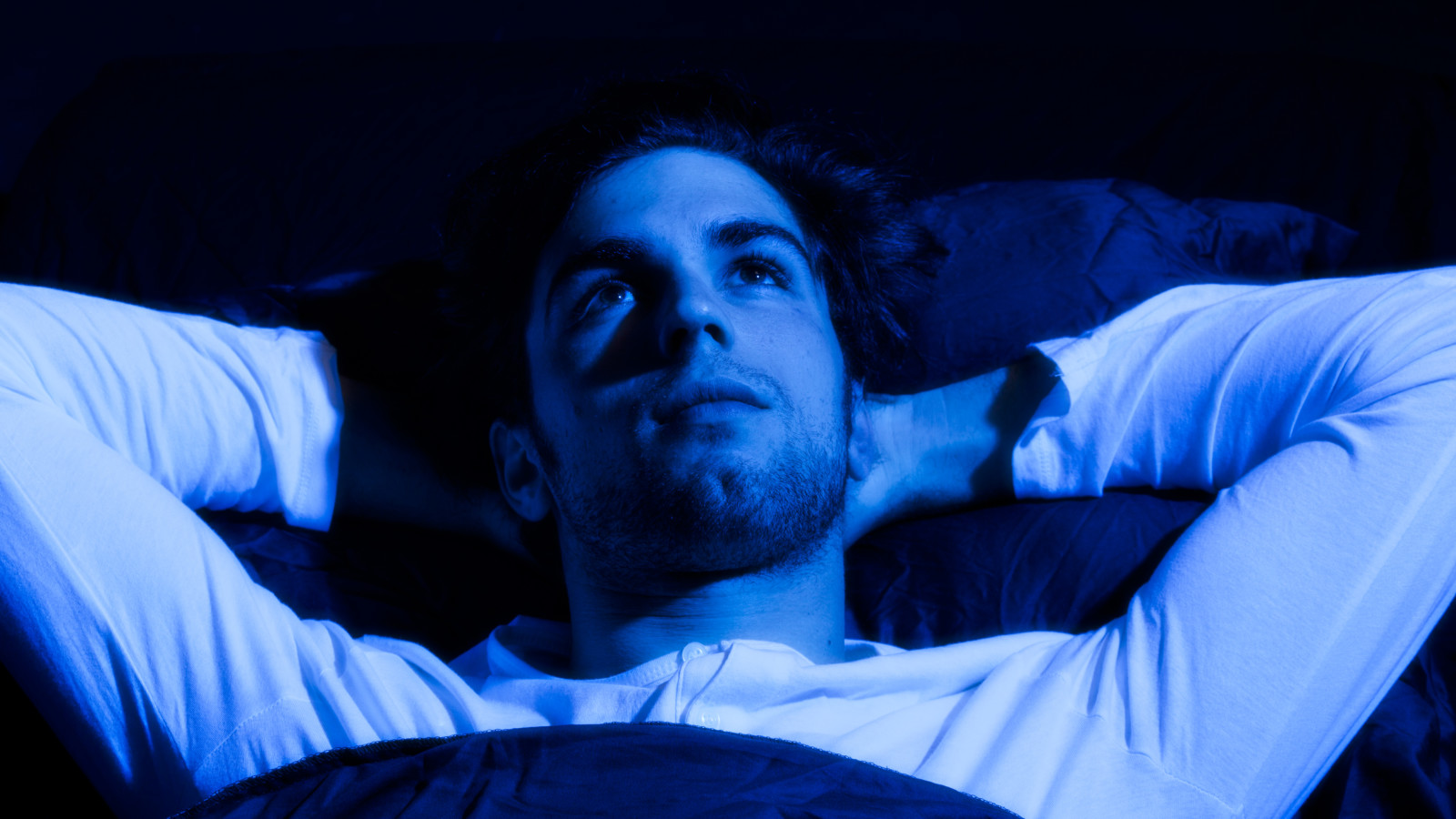Do you ever find yourself lying in bed in the middle of the night, unable to sleep? Your mind racing with thoughts about everything from work and money to the pandemic and the state of the world?
And then, do you find yourself caught in the vicious cycle of worrying that you’re not getting enough sleep — which only makes you more anxious and keeps you awake?
You’re not alone.
Most of us experience multiple “mini awakenings” throughout the night that we don’t even notice, says Dr. Aaliya Yaqub, M.D., Thrive Global’s Chief Medical Officer. And when we do get caught in a vicious cycle, it’s often because of stress. “When you feel stressed, your body activates your sympathetic nervous system, and that may cause you to jolt awake in the middle of the night.”
“The number one question I get asked by patients is: ‘How do I turn my brain off and get back to sleep?’” clinical psychologist and sleep specialist Michael Breus, Ph.D., tells Thrive. But it’s actually normal to wake up several times in the middle of the night, even if you have a consistent nighttime routine, says Breus, the author of books including The Power of When and the forthcoming Energize. And trying to force yourself back to sleep isn’t the answer.
“Instead, the key is learning to relax so you drift off naturally,” he says. “Sleep is a lot like love: The less you look for it, the more it just shows up!”
Here are eight tried and tested tips to help you get back to sleep in the middle of the night.
Avoid looking at your clock or phone
It’s tempting to check the time when we’re lying in bed, but clock-watching only causes stress. “The solution isn’t rocket science,” says Breus. “Turn your clock or watch around and don’t look at it. And definitely don’t look at your phone. The blue light will keep you awake.” You’ll also avoid the temptation of scrolling through Instagram in the middle of the night.
Reframe your thoughts
Negative thoughts can become overpowering as you lie awake. “You do the mental math and think: ‘Oh no, it’s 3 in the morning, I have to get up in three hours,’” says Breus. He suggests “flipping the script” by telling yourself something positive, like: “I now have the opportunity to fall back asleep and get a few extra hours of rest.” You can even appreciate the fact that you are in bed. “Lying in a relaxed position isn’t as good as being asleep, but it is still rejuvenative,” says Breus. Studies have found that “wakeful rest” can support memory function and cognition.
Stay in bed
“I’m not in favor of getting out of bed unless you have to go to the bathroom or do something essential, because it elevates your heart rate and makes it harder to fall back asleep,” says Breus.
If you do have to get up, try to avoid turning on the lights, which can interfere with your body’s melatonin production and stimulate wakefulness, Dr. Yaqub says.
Do some deep breathing
Simple breathing exercises can help, says Breus, who recommends 4-7-8 breathing. “It works by lowering the heart rate and allowing more oxygen into the system so you become calm.” You breathe in for a count of four, hold it for a count of seven, and breathe out for a count of eight. Or try “box breathing,” a stress-reducing technique practiced by Navy SEALs. Another helpful option is belly breathing — consciously using our diaphragm when we breathe — which babies and animals do naturally. There are also plenty of soothing mindfulness meditations available.
“When I have that occasional middle-of-the-night wake-up, it’s usually due to stress, so I’ll try some deep breathing and think positive thoughts to get me more relaxed,” says Dr.
Yaqub. “And sometimes getting those repetitive thoughts, worries, stresses, or anxieties onto paper is helpful.”
Relax and tighten your muscles
Breus suggests trying a simple technique developed in the 1920s called progressive muscle relaxation. You can start at the top of your head, tensing and releasing the different muscle groups, moving all the way down to your toes. “It can lower anxiety and help you fall asleep,” says Breus.
You could also try the free 30-day Sleep30® Challenge by Sleep Number, shown to help improve poor sleep habits and sleep quality*.
Distract your mind
Try counting backward from 300 by three. “It sounds crazy, but it’s far more effective than counting sheep,” says Breus. “Just start doing the math: 300, 297, 294 … it’s so complicated and so boring, you’ll find you are quickly out like a light.”
He also suggests experimenting with a technique called cognitive shuffling, which works by scrambling your thoughts and distracting the brain from anything stressful. Pick a random letter, then think of a word that begins with that letter — like Z for zebra — and spell it out in your head before moving on to other words and letters (if you don’t fall asleep first!).
Sleep on the right bed and bedding for you
“Part of the reason people toss and turn in the middle of the night is that they’re uncomfortable,” says Breus. “How old is your mattress? Ask yourself whether it’s time to replace it.” And the same goes for pillows and sheets.
A supportive bed and bedding can help boost your comfort and wellbeing. And the Sleep Number 360® smart bed is a great choice, because it effortlessly adjusts throughout the night, sensing your movements. Plus, sleepers who routinely use their Sleep Number 360® smart bed features and SleepIQ® technology get almost 100 hours more proven quality sleep per year!**
Make sure the temperature is right for you
When it comes to how couples sleep, one of the biggest factors is sleep temperature. 83% of couples report one or both partners sleep too hot or cold.**
It’s important to stay cool at night, but if you wake up feeling too warm, Breus has a simple solution: “Get your feet out from under the covers and you’ll cool off immediately.” And if you wake feeling uncomfortably cold, just put on a pair of socks.
For a longer-term solution, there’s the Sleep Number 360® i8 and 10 smart beds, which have a revolutionary breathable sleep surface. They balance the temperature to help keep you cool and comfortable all night on each side.
Finally, if you wake up multiple times throughout the night and aren’t getting the recommended seven to nine hours of sleep, Dr. Breus suggests scheduling an appointment with your doctor to rule out a disorder such as sleep apnea or restless leg syndrome.
Thrive Global and Sleep Number believe quality sleep has a profound impact on health and well-being. Today, this is more important than ever as we look to quality sleep to help boost immunity, increase energy, and improve recovery. Visit sleepnumber.com to find the best sleep solution for you, so you can wake up to your greater purpose.
*Based on internal analysis of sleep sessions assessing sleepers who use multiple features of Sleep Number® products. Claim based on sleepers achieving over 15 more minutes of restful sleep per sleep session.
*Based on Sleep30® Challenge participants November 2018 to March 2019.
**Results from a 2020 Sleep Number survey of 1,004 respondents who reported they or their partner sometimes sleep too hot or too cold.


